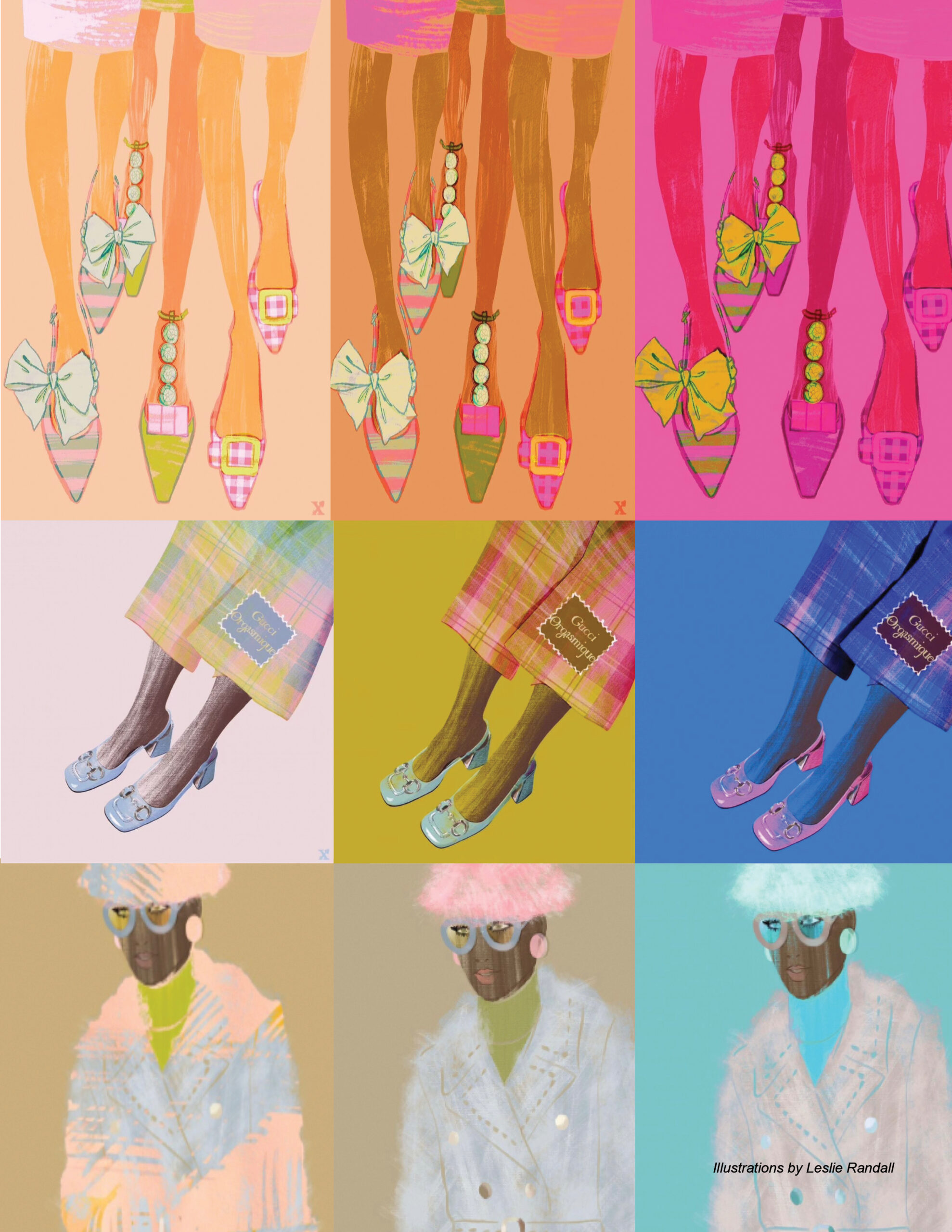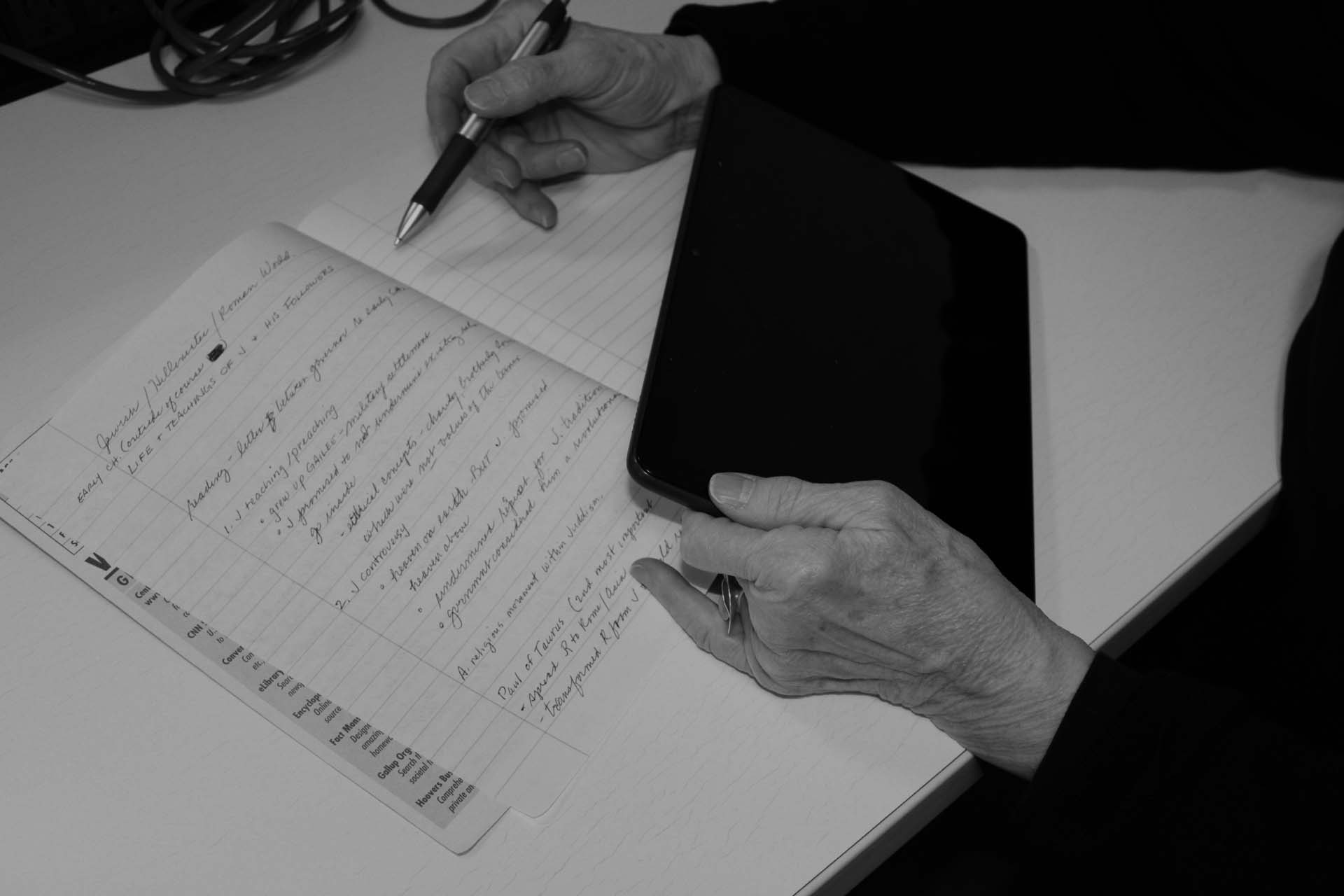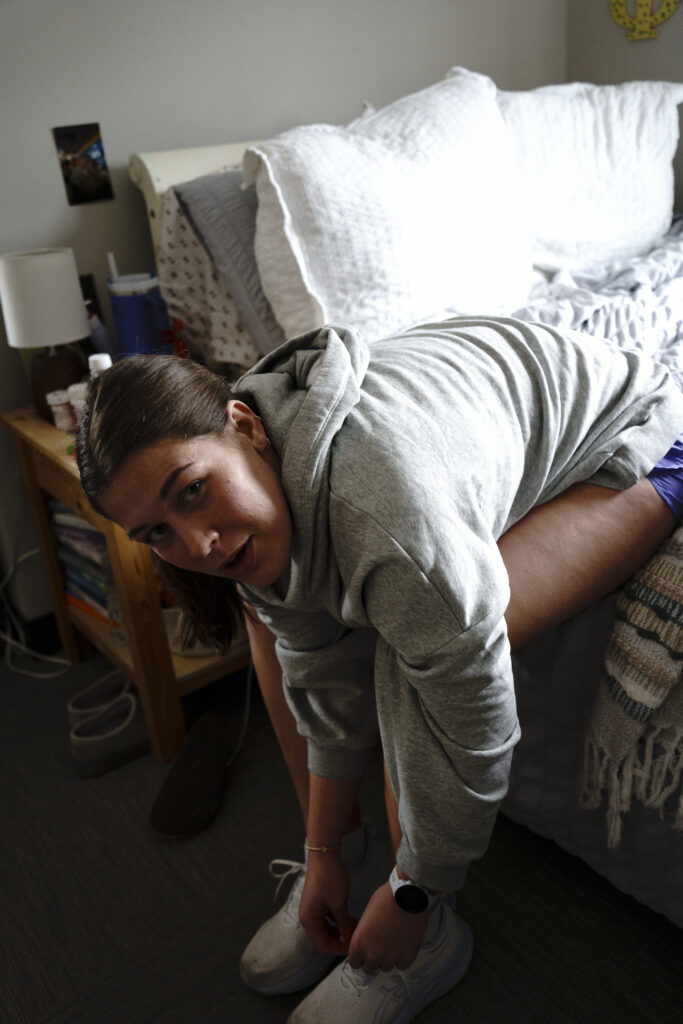
Life After the Game
By Sadie Grunau
Kimball Utsey is preparing for a run in Minneapolis on February 27, 2024. Photo by Maya Modelli
The search to fill the void of athletics. How college athletes find themselves after their time on the team has come to a close.
Kimball Utsey’s heart sank when the University of Minnesota women’s rowing team coach informed her that she would not be on the team for her final year of college.
The coaching staff implemented an entry test for the rowers at the beginning of the season. Unfortunately, Utsey did not make the time cut for returning seniors, resulting in her no longer having a spot on the team.
Her Monday through Sunday would not involve two-hour practices, she would feel disconnected from the teammates she considered sisters and her long-standing identity as a competitive athlete would be stripped from her.
That she would have been so sad not to be on the rowing team would have struck Utsey as odd just a few years earlier. As a lacrosse player for much of her life, Utsey was seeking a spot on a Division 1 lacrosse team during her college search. However, with COVID-19 changing the trajectory of many 2020 high school graduates, Utsey decided to stay close to her home in Wayzata and attend the University of Minnesota.
She walked onto the women’s rowing team as a freshman, looking for the community of athletes she had for much of her life. Having never rowed before, she came to regard the decision as one of the best of her life.
Collegiate athletes are a different breed. There are close to 1,000 on campus, who all eat, sleep and breathe their sport; making friends with their teammates who quickly become family and dedicating their every free moment to the team they would give anything for. When this chapter of athletes’ lives comes to a close, it is nearly impossible to imagine the void. So, how do they find their new identity, and how do they ensure that their lives are still as full as they once were when they had the privilege of representing their school in competitive athletics?
“I felt betrayed,” Utsey said. She had given her whole life to athletics. It hurt to have a coach she trusted strip her of one of the most prominent aspects of her identity that warm afternoon in September.
Athletes’ careers come to a conclusion in many ways. There are cuts, burnout, championships and injuries. The moment athletics is taken away, no matter how it happens, is terrifying. Athletes mourn the loss of a part of themselves and begin the daunting journey of finding new aspects of their identity to fill the void.
Annie Keiper, a University of Minnesota senior, had a different experience. Her athletic career, which began when she was 3 years old, ended on the highest note possible: with a national title for her and her dance team.
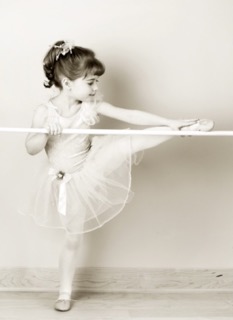
At the ESPN Wide World of Sports Complex located in Orlando, Florida, Keiper’s team was crowned the national champions of the pom division at the University Dance Association Championship in January 2024.
“It was the best feeling ever. I was ecstatic,” Keiper said. “But I’d be lying if I said it wasn’t bittersweet. I knew this was the end of an era.”
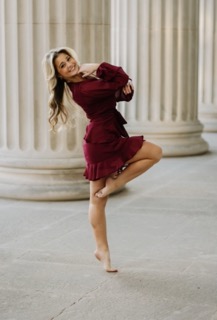
Maeve O’Driscoll, similar to Utsey, had her athletic career cut short after her third year on the University of Minnesota swim and dive team. However, her decision to stop swimming was her own.
O’Driscoll, a swimmer who specialized in the 50-, 100- and 200-meter freestyle races, decided that the swim team was no longer what she wanted for the remainder of her college career. She spoke with parents, friends and coaches, and ultimately decided that her time as a swimmer must come to a close.
“I was burnt out. It wasn’t fun anymore and I wanted the freedom to explore new parts of myself without the constant pressure to swim the fastest time in the upcoming meet,” O’Driscoll said.
Each of these three women had practiced for more than 20 hours per week and dedicated many of their college weekends to competitions all over the country. They had not only lived with their teammates but considered them a second family. And then, in a snap of a finger, it was gone.
“It’s been a journey trying to learn how to fill my time. I have struggled with scheduling, discipline and productivity,” O’Driscoll said. “But at the same time, it has been fun to learn what I love, without the swimming constantly in the back of my head.”
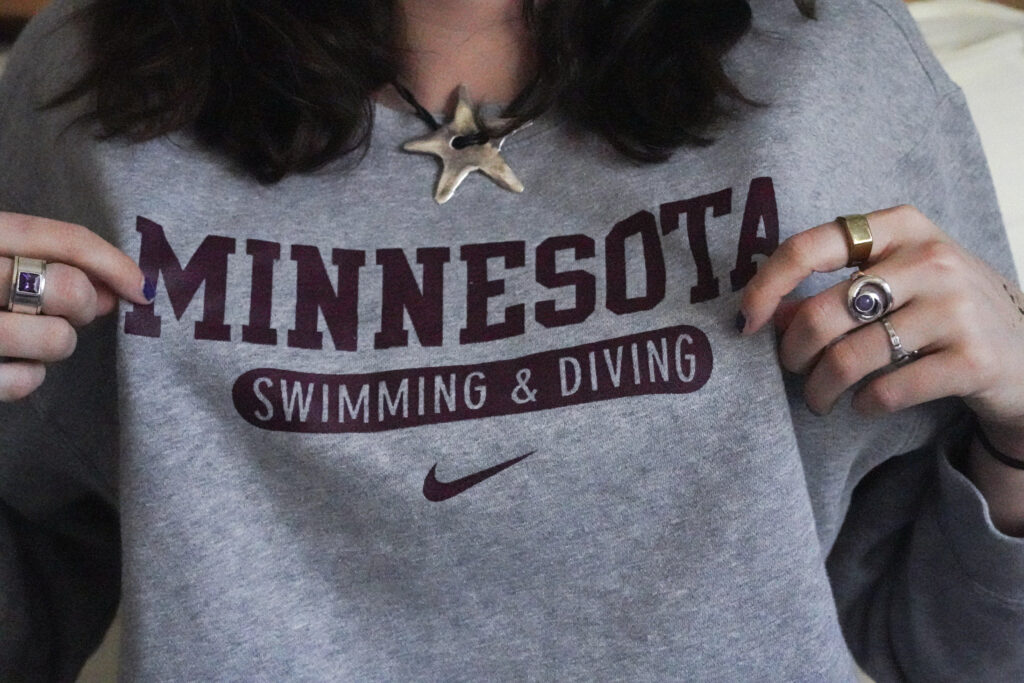
O’Driscoll has found new passions in running, music and spending time with loved ones. She can also explore her professional life with internships and part-time jobs now.
It’s not only athletes that experience this loss, of course. As college seniors wrap up their time here at the University of Minnesota, athletes or not, it can be difficult to understand where to go from here. It can feel as though life will never be as simple as it is now, and major parts of the person you have always been are seemingly gone after you cross that commencement stage in May.
“Give yourself grace,” Utsey said. “This is a difficult time for everyone and as an athlete, you will experience a lot of changes, especially in your body.”
Staying disciplined in terms of health can be hard when you no longer have a coach writing up workouts for you seven days a week. It can be difficult to find a type of movement that suits you following your time as an athlete.
“I have learned that I love to run,” Utsey said. “It has brought me a lot of joy after my rowing career ended.”
Lucas Mortenson, University of Minnesota men’s rowing Class of 2017, is further removed from his time in athletics. He graduated with a degree in urban planning and said goodbye to the sport he had dedicated many years of his life to.
“It was a rude awakening. ‘Rower’ was always in the top three words I would use to describe myself so to have that be gone was confusing,” Mortenson said.
Mortenson, upon his graduation, left behind teammates and friends and moved to Eau Claire, Wisconsin, for a summer internship.
“I would come back to the Twin Cities on the weekends and see my teammates,” Mortenson said. “I wanted to feel like I was still a part of the team.”
Over the past seven years, Mortenson has learned that being a competitive athlete is not the most interesting thing about him. He has developed a love for running, has completed two marathons and actively keeps in touch with the friends he made on the team.
“I have gone to many weddings of teammates over the years and it is always fun to reconnect with them,” Mortenson said. “I still keep a University of Minnesota rowing visor on one of the headrests of the backseat of my car, just to remember my time there and to show my pride.”
Keiper describes how she, like Mortenson, has coped with the end of her athletic career.
“I have just tried to take in every practice, competition and team bonding experience,” Keiper said.
She has found a new sense of appreciation for her time as an athlete and has leaned into the lessons she has learned from the dance team, such as organization, time management and discipline.
Utsey and O’Driscoll have both found ways to incorporate their sport into the last year of their college experience, despite no longer being a team member. Both young women make an active effort to spend time with teammates and continue to cultivate those relationships that began with their sport, no matter if it was in the boat or the pool. They have kept in touch and learned that, with effort, those relationships can continue to flourish, despite no longer attending practices, races and competitions.
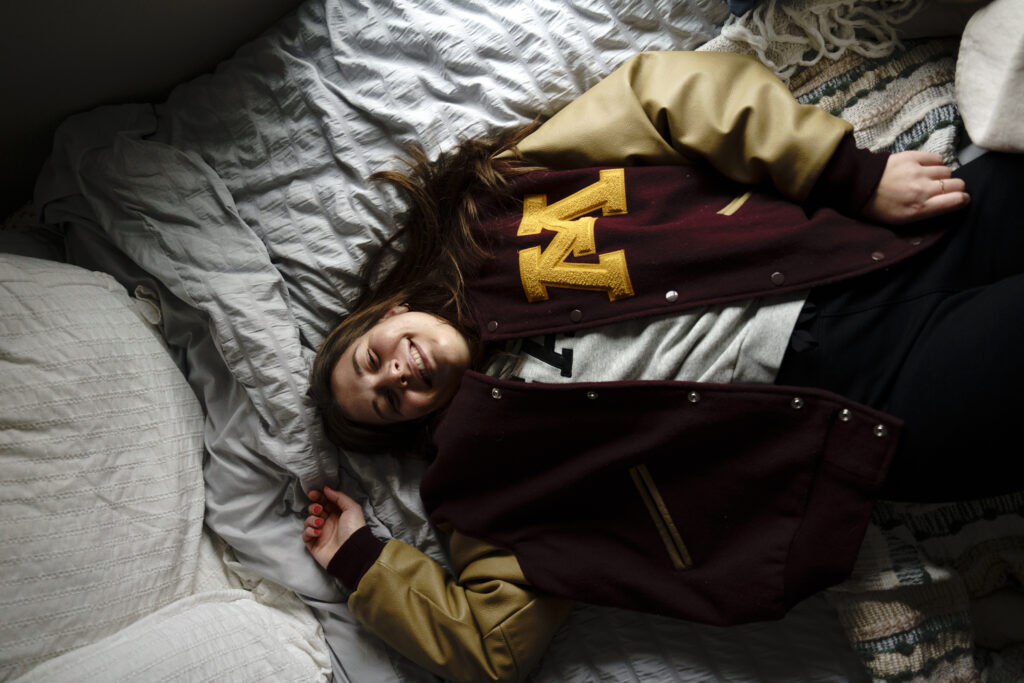
Whether a college senior wears the athlete tassel on their cap and gown in May or not, this next chapter can seem frightening for many. It also is a chance to explore their identity beyond the confines of this campus.
“Have fun with it and explore new things,” Mortenson said. “Keep your people close and find out what fills your cup again.”

